I’ve written a lot about food on this blog– mostly recipes. I’ve also shared why we shop at the farmer’s market, whole-food juicing, and proper tea-steeping protocol.
But I haven’t shared as much as I’d like to about how I (and my husband) think about the food we eat. This is a social and health issue that I am crazy-passionate about, so I thought I’d shed a little light on it. Here are some guiding principles and insights into how we eat!
We don’t follow food trends.
Americans are finally realizing that the Western diseases (heart disease, obesity, cancer and diabetes– to name a few) have gotten the better of us, so there about a thousand different food philosophies to choose from.
Veganism. Vegetarianism. Paleo. Atkins. Locavore-ism. Raw-foodism. Gluten-free. Freeganism. Dairy-free. Pescatarianism.
Perhaps the one thing these philosophies all have in common is their relative high cost and low convenience. You just can’t eat at McDonald’s (or Costco, Walmart, or the food court) when you’re on one of these diets.
But ultimately, I think these food trends woefully miss the point. For us, it’s less about cutting out certain food groups, and more about asking this question: where does our food come from? Who makes it? And what is their end goal?
There’s a systemic problem within our own food industry.
If you’ve read some of my earlier food-related articles, you’ll know that I’m a huge fan of Michael Pollan. His famous book The Omnivore’s Dilemma brought to light one of the major culprits that has led to all of trending diets I named above: industrial agriculture.
At the risk of sounding like an 8-year-old, I’ll come out and say how I feel: I HATE INDUSTRIAL AGRICULTURE. It’s cruel. It’s unsustainable. It’s killing the poor and it’s killing us. It’s impossibly lucrative and deceptive. And it’s ruining our planet.
So what is a food-loving flexitarian to do? What is the problem with eating whatever we want?
Let me rephrase that. What’s the problem with the Western diet?
Our problem is agriculture. The advent of agriculture transformed the human experience. And while most people still think of this as progress, one look at Food, Inc. and you’ll think differently.
Agribusiness, especially in the US, is ridden with drugs, patents, corporations, advertisements, and misleading research.
It’s also where a lot of the cruelty comes from. It’s cruel to our planet, it’s cruel to our food, and it’s cruel to many of its own employees. And it’s cruel to its own patrons (you and me).
Ultimately, our enemy is the way that agriculture has developed into an unsustainable, expensive, highly-medicated and insensitive practice.
So my food philosophy revolves around what’s natural, whole, good for the community, good for our planet, and good for our food.
So how shall we eat? A few guiding principles
The problem is that we can’t escape industrial agriculture by following any of these trendy diets. At the very least, we’re going to have to get a little more specific. Here are a few guidelines that we follow:
1) Wholeness. You’ve probably heard the diet tip of shopping only on the perimeters of the supermarket: where the whole foods are. You won’t find soy lecithin lurking in that bunch of organic kale. I eat whole foods as much as possible, in their natural state. This means avoiding packaged foods of all kinds: frozen meals, snacks with a long shelf life, sodas, pre-made sauces, canned soups, lunchables, and more.
2) Cleanness. As I wrote above, so much of our food– animals and plants– is severely medicated. Think that vegetables aren’t as medicated or altered as industrial meat? Think again! Plants and animals raised in an environment that requires antibiotics and pesticides because those environments just aren’t natural: instead, they’re dirty and chemically contaminated. The soil is depleted of nutrients. Natural energy is going to waste. So to me, clean eating means buying organic and local as much as possible. And yes, it means avoiding all industrial meat, animal products, and fish.
3) Seasonal. This is where the farmer’s market comes in! Did you know that different plants are naturally ripe and delicious at different times of year? Some people don’t, because you can buy the bounty year-round at the supermarket. But take a trip to a farmer’s market and you’ll realize that this year-round bounty is not natural. Tomatoes are a summer fruit. Apples ripen in the fall. Eating seasonally means creating meals out of whatever is in the height of its growth that time of year. It’s so fun!
4) Humane. I don’t consider eating animals to be cruelty to animals. We live on a planet where wild animals eat animals. However, I do believe that industrial farming practices are incredibly inhumane. And they’re not just inhumane to cows, pigs and chickens– they’re inhumane to earthworms, grasses, local birds, marine life, and even the humans who work there. If you have access to pastured animals where you live, I encourage you to check it out. These small farms are run by people who feed their animals well. Cows eat grass, not corn. Pigs forage as they do in the wild. Chickens eat what they find in pastures, not chicken feed. This is the type of farming practice I can get behind: where animals are raised in natural environments that would please and sustain their wild ancestors.
A note about eating meat…
If we had a lower weekly grocery budget, I think we would be vegetarian. Possibly even vegan.
In order to uphold our standards for animal products (from dairy and eggs to ground beef and fish), we purchase from suppliers who have been transparent about their ethical standards.
This goes beyond “organic,” as food corporations are starting to own that industry anyway.
I bought a half-chicken yesterday. It was raised by DeyDey’s, a local farm that pastures all of its animals. With much fewer than 1,000 animals, it is teeny-tiny compared to big meat producing farms. Their animals run wild and eat off the land, cultivating it as they go.
This chicken was $6.75 per pound and I paid $11 for it. I’ll be roasting it, boiling it for broth, and then making a delicious chicken tortilla soup out of it this week.
We also eat grass-fed ground beef, which usually sells for $5-$8 per pound. And we buy these sustainably-harvested sardines from Wild Planet.
As far as eggs and milk, we look for brands that are reputable for their treatment of animals. Here is a chart comparing companies that produce organic eggs, and a chart for organic milk, that have evaluated the quality of conditions (and therefore the quality of product).
So you want to eat more real food. Where do you start?
- Prioritize natural farming and sustainable harvesting practices when you shop, and request for your local grocery to stock more organic, fair-trade and/or pastured products.
- Most of us have to mix and match, especially at the beginning. Do what you can.
- That said, we need to rethink why we want food to be our cheapest expenditure. What can you do on the cheap instead? Would you cancel cable TV, go out less, or give up Starbucks in order to eat real food?
- Reconfiguring our grocery budget was the first step. I’ve mentioned this before, but we spend 50% or more of our budget on fresh produce alone.
- Cut out packaged foods and learn to cook (again, slowly).
- Find some more resources. Look for your local CSA (community supported agriculture) to see how much their subscriptions cost. Read any book by Michael Pollan— most are available on Kindle and you can download them right now! Or check out my favorite real-food blog, Live Simply.
There is so much to say on this topic and so little space on a blog! But I promised to write more about myself and things that are important to me, and this is one of them. Let me know if you’d like me to write more often on this subject.
This is how we can love the earth, love our food, and love each other.
How do you decide what to eat, and where to shop for food? Are you willing to try (or do you already love) a real-food diet? I would love to know!

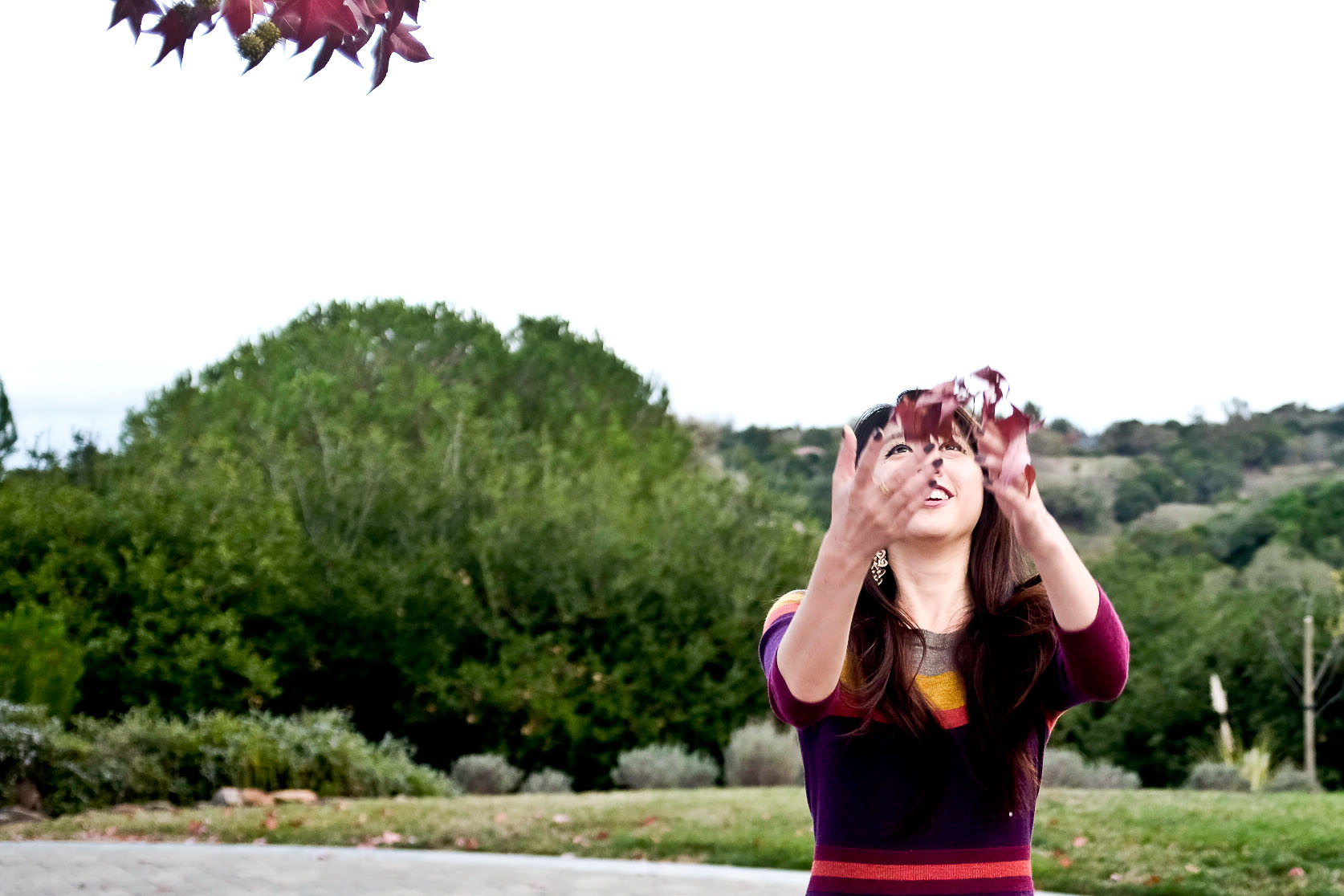
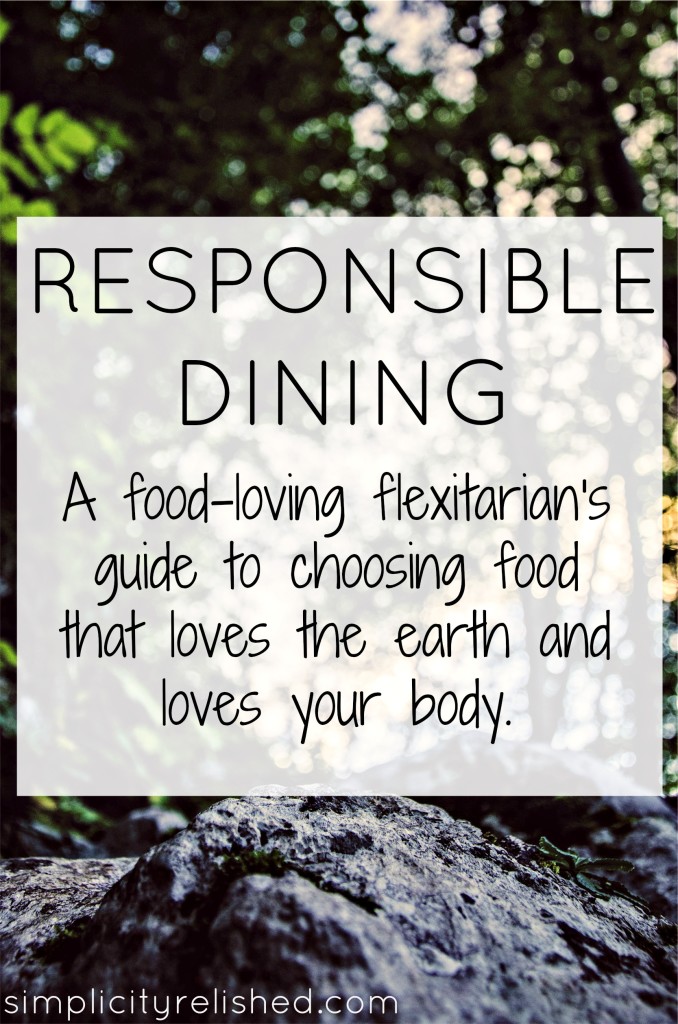
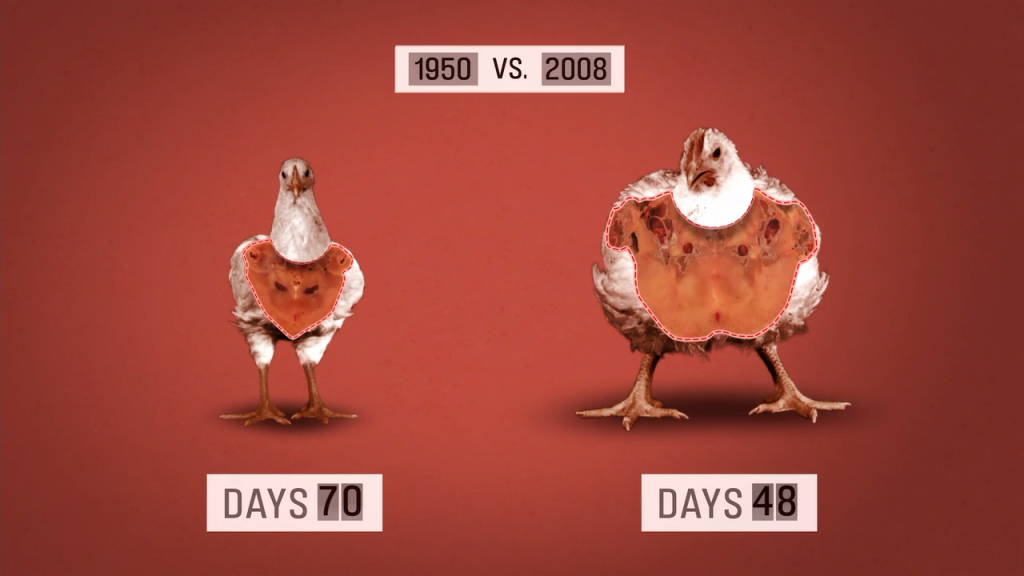
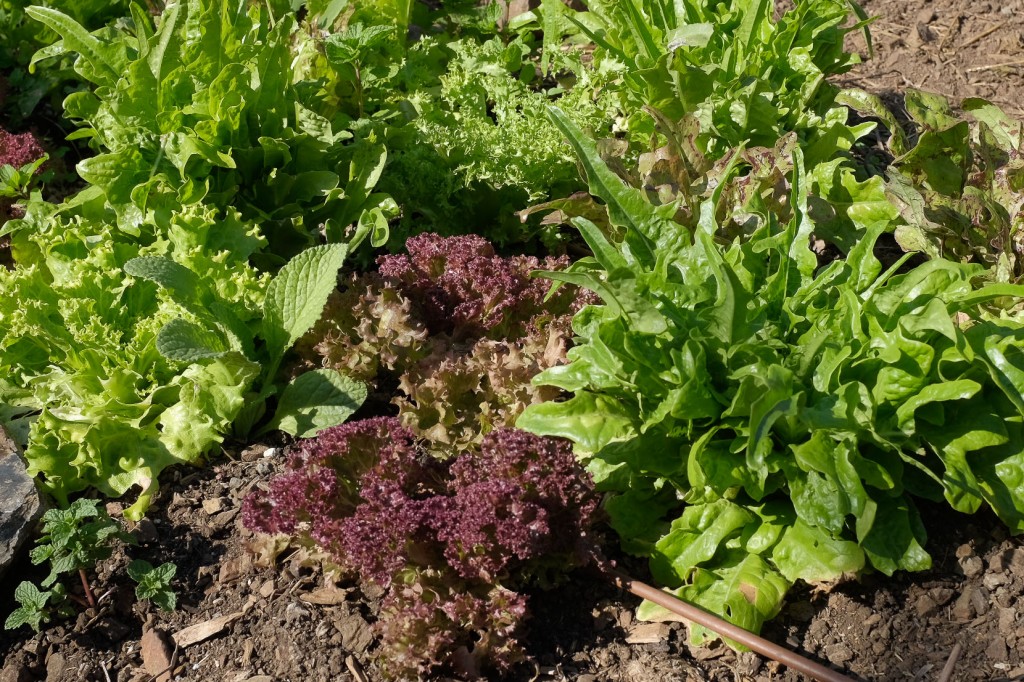
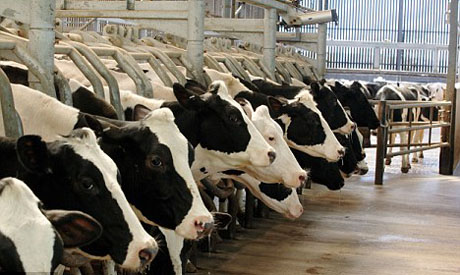
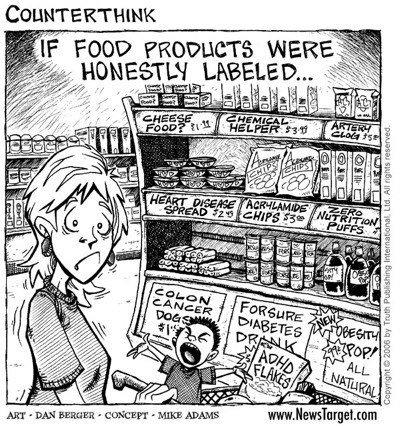
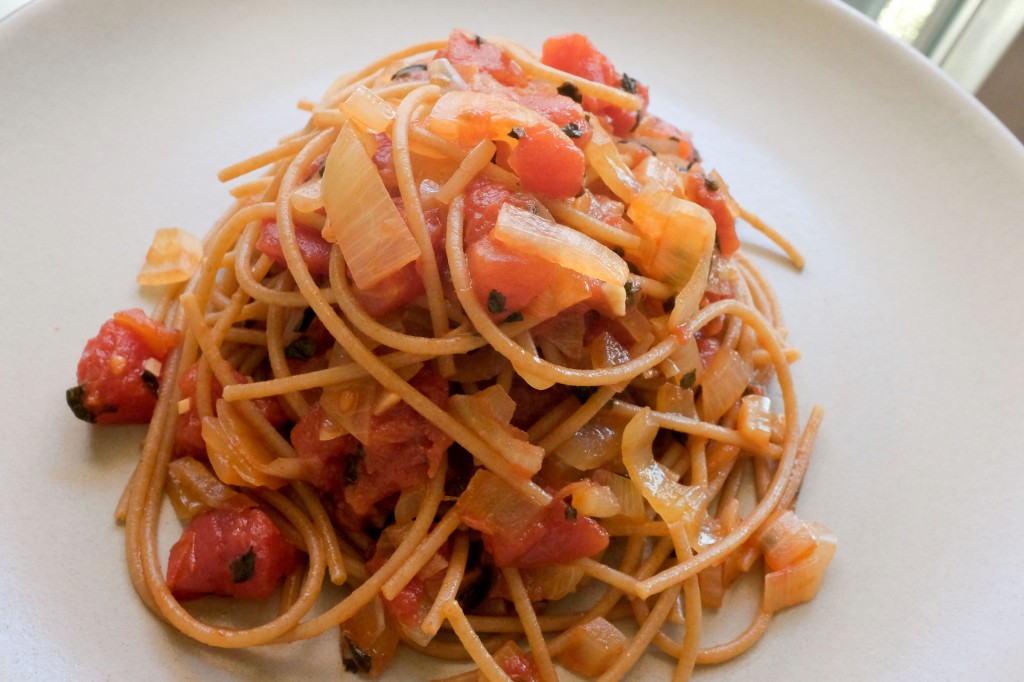
What a thoughtful, informative post! Thanks so much for putting your heart into this and doing such an amazing job encouraging and educating us on this issue : )
Wonderful post and subject, thank you for sharing! This is something I’ve thought a lot about, because I really care about the way animals are treated and nutrition. I can’t buy the quality I would like at this time, but hopefully that can change soon. 🙂
Oh, I feel you Rachel. My parents are Taiwanese (the most squeamish when it comes to anything from *China*) and we’ve heard the horror stories… and when we traveled to China it was definitely an interesting dining experience. You’re right– sometimes the system is so complex there’s not much we can do. I’m very impressed with your husband’s willingness to eat fish organs and pig’s blood, the latter of which I have to this day resisted trying, ever.
Where we lived in Michigan was a great place for supporting small and local farms (my great-grandpa made his living off of a roadside produce stand until he retired and sold the farm–3 generations of the family worked there)….plus Angel and I grew some of our own fruit and veggies, given that we lived on 7 acres and had wild fruit trees and berry bushes on the property. Living in China….where you regularly hear about cat/rat/dog meat in restaurant food from little shops and bleach added to tofu and toxic chemicals in baby formula….you kinda just have to decide “I’m not going to let this cause me anxiety” and, as much as possible, cook whole foods in my own home and eat whatever’s set in front of me with grace (sometimes dumping the fish organs and congealed pig’s blood from my own bowl into my husband’s when the host is not looking, I’ll admit). Food is such a complicated issue and the way it’s produced has so many problems. I applaud your commitment to eating well and rightly!
Oh gosh, it’s terrible!! We’ve really used science to do some horrific things, including genetically modifying plants and animals! In addition to meat, I’m also super careful about vegetables and grains I buy– especially in terms of where they were harvested, how they were grown and how the workers were compensated. A lot of that is still in the dark, but I want to know more about it! Thanks for reading, friend!
Thanks Shauna! I really appreciate you reading. 🙂
Aw thank you Jenna. Actually, I think you would *love* “Cooked” by Michael Pollan. It’s a celebration of cooking methods while sharing more about where food comes from. And he’s hilarious! I loved reading it, it was a page turner. Anyway, I think all of us can take small steps and do what we can… and hopefully the food industry will change!
Thank you so much for reading, Heidi. Eating clean is a huge challenge and food corporations make it very hard for us!
I’ll definitely try to write more, thanks Nabihah! Yes– packaged baking materials are so easy to use, but they’re very processed. And yes, when I was a student (I was mostly on the meal plan) it was nearly impossible to afford organic. But avoiding the Dirty Dozen is a great way to go!
Thank you so much Anita!! I’ve not been to Hollywood market– but we love our farmers market in Pasadena. I’m sure you’ll find great stuff there (though I doubt it’ll be cheap, haha).
Yeah, it is so hard to do and not very affordable. Summer is a great time to eat clean though– tomatoes, peaches, all the yummy stuff. And taking small steps is the best way to go. I really hope that the industry changes to make real, unadulterated food available to everyone. And making your own baby food is so awesome!
Thanks girl!! Oh man, Food Inc is a really fabulous (though depressing) documentary. And I had no idea you raise your own chickens– that’s SO cool! That’s farther than I’m able to go, at least for now!
Thank you so much Shireen! I’ll try to write more 🙂 And it’s such a good thing to teach your kids, your kids are lucky to have you as a mom!
Thank you so much Miriam! Those are awesome steps that you guys are taking! I think you’ll love going to the farmers market, it’s so fun!
Thank you so much Courtney! And that sounds great that your grandfather has passed that passion on to you. So awesome.
The photo above w/ the two chickens from varying years makes me sick to my stomach. I have been a Vegetarian for nearly 8 years now, and anytime I have the urge for meat (or even some dairy products) it’s images like that that flash through my mind. Poor, poor animals and poor, poor us that some of us aren’t aware of the unhealthy food (that some think is healthy) that we put into our bodies. Thanks for posting this to raise awareness, Daisy! Xo, Alison
http://www.simplyfairbyalisonjeanine.com
Another wonderful post! I found all of it so interesting. Makes me rethink a lot of what I put into my body daily -xx
Shauna
http://www.lipglossandlace.net
This gives me a lot to think about! I have read some articles like this and seen some documentaries. I’ve been trying to make small changes to avoid processed foods and buy from local farmers. After reading this, I think I need to make a few more changes. Thanks for sharing this!
This is such an important topic to cover. I definitely don’t eat as clean as I’d like to. But it’s something that I’m working on and I think people need to realize that turning a blind eye isn’t going to make this systemic problem go away.
Heidi D.
http://www.wishesandreality.com
I’d definitely love if you’d write more often on this subject. People are slowly but surely realizing how harmful the food we buy is! I was even thinking the other day of how easy it is to buy brownies and cakes rather than making them (despite the fact I love baking). And I thought either way, they’re bad for you so why not just buy them as save the time. But then I realized these packaged foods are filled with additives, preservatives and chemicals and buying brownies are definitely worse than just making them yourself! I’m still a student and my student budget means I can’t afford organic foods but I try to buy organic when it comes to the Dirty Dozen such as spinach, kale and blueberries. Just baby steps but I’m sure they help in the long run!
thesundaywardrobe.blogspot.com
Wow — Daisy! This post is excellent. I’ve been taking small steps toward eating whole foods and cutting out processed stuff, but this summarized everything really well for me! Thank you!
I think adding a farmers market into my weekly rotation would help our little household a lot, too. I’ve heard amazing things about the Hollywood market!
Always, Anita
We are in the do what you can stage. Winter is the hardest because the farmers markets arent in full swing mode. However come this summer, I will have a ton of access to organic, fresh, locally grown produce. As a former employee of Chipotle, I was educated about rbGH and various other growth hormones added to our food. It’s disgusting and so hard to avoid. I believe with a few baby steps we can get there eventually. Thanks for all the great tips Daisy. I think it’s great you care so much about the food you eat. I was so turned off by all the additives in jar baby food that I made my own daily. (:
Preach it girl! I agree with you 100% the first time I watched Food Inc. I was horrified! We try to eat whole and sustainable as much as possible, we raise our own egg chickens and grow a garden in the summer and recently built a greenhouse we hope to be using soon! We aren’t perfect by any means (especially with a picky toddler) but having a focus on choosing the best you can is awesome! Great post!
Brooke
pumps and push-ups
Another well written post, Daisy and yes, I would love to read more of these posts. I must admit that back in Malaysia, I never cared about what/how I eat but I am trying to educated myself to be more sensible with food for the sake of my family. It’s also a good thing to teach my little one later.
Shireen | Reflection of Sanity
I love this post. Actually that’s an understatement. My boyfriend and I have been more alert about the kinds of food we put into our bodies. We started buying organic, however we are also cutting out meat, just a personal choice we decided on. We are still yet to go to a farmer’s market, but we both really want to go, hopefully soon we can make it happen. I would love to see more posts like this, it’s a topic that’s beginning to get close to my heart, and I think it’s something that people need to be more educated on!
So wise! My grandfather worked for John Deere for years and still to this day emphasizes the importance of natural farming! When I moved to Denton, he was excited that there was a community market that met in the area to sell local produce and natural products. Having that nearby has been game changing when it came to my eating habits!
Courtney | The Everyday Elegance
Thank you so much Gina! I really appreciate that. I would LOVE to read about your views on food. This topic is so fascinating to me and I want to hear different points of view! 🙂
Thank you Jeannette!! You are a woman after my own heart 😉 So agree with everything you said here about cultivating more love for ourselves and for the earth, and everything that dwells on it. I am so glad you enjoyed reading this. And I hope you do get in touch with Anastasia, she’ll show you how it’s done. I also really enjoy sponsoring Madison at The Wetherills Say I Do (that’s the name of the blog). You can ask her all your questions too! 🙂 Have a great day!
Thank you so much Jasmin! And I totally respect where you stand on eating animals. We do have a choice and there’s nothing that says humans have to eat meat. I think my concerns with drawing the line at meat are that there are many methods of raising crops that are unethical as well… and I hope the whole system can change! And as far as food trends– I think there are tons of people who view “diets” as just that– diets– rather than ethical decisions for a lifetime. I have tons of admiration for people who make that full commitment though! Thank you for reading xx
Thank you Joanna! I’m really glad you enjoyed reading this! It’s important to take everything one step at a time. 🙂
Thank you Sheryl! You’re right– step by step is the best way to go. It’s a drastic change and many people don’t have a lot of options, but it’s so so important for our health and future. Thanks for reading 🙂
Thank you Renee 🙂 Feel free to throw any questions my way!
This is a wonderful post, Daisy! In fact, just last night I had an idea to write a post on my food philosophy because I think it’s so important for us to know what exactly we’re eating and the effects it has around us. Then, I saw this post! I love your approach to food and loving the earth at the same time. Thanks so much for sharing your point of view–I agree with many of the points you made! 🙂 Can’t wait to hear more about your thoughts in upcoming posts!
Dear Daisy, Yes! I would love for you to share more of this type of posts. I have always struggled with this subject just because the more I learn about it the more frustrated and sad I get to see where things are going. I have been vegan, vegetarian you name it! But now I just try to eat as clean as possible whenever I can without being too paranoid about it either. My concern is not much about my body as I know within my heart that nothing can cause harm to me (I always visualize healing and loving energy within me, therefore nothing can harm me) but it is more with the way we, as humans, are living and like you said the condition of our earth and everything in it. From the abuse to the workers to the cruelty experienced by the animals and the earth, it us just heart breaking. I pray that we, as a conscious society, unite ourselves to create a more loving, conscious and positive way of living by changing the way we think and how we treat each other and cultivating more love within ourselves. Thanks for sharing my sweet friend. You are amazing and I love your blog:-) I will follow your suggestion about getting sponsors for my blog. I know you recommended Anastasia (will contact her). If you have any other ones you recommend I will appreciate it very much. Have a blessed week!
http://www.msjeannieandhercloset.com
Great, informative post that definitely encourages us to think about what we feed our bodies. I agree with all points but one. For a lot of people, being vegetarian, pescetarian or vegan is a conscious choice, not just a fashion trend, and reasons are probably as diverse as people. Animals eat other animals, but it’s not like they have a choice. Us humans, however, we do have a choice. I, for example, have decided not to eat meat, because I don’t want animals to die for my culinary pleasure – whether they’ve had a good life or not. While I encourage omnivores to source meat locally, from ethical suppliers, I personally can’t justify any kind of meat consumption.
Jasmin xx
http://www.whatdefinesus.com
What an amazing, informative post! I try to purchase food locally when possible (seasonal fruits and veggies, and eggs from farmers nearby) but I definitely could be doing more!
lovejoanna.com
I so agree with you here. Over the past few years, we have become much more conscious about where I food comes from. In the beginning it may take more time but after you start becoming more aware, it becomes a habit and easier.
Wow this was such a good read! Very informative and its actually given me a lot to think about.
Renee
http://www.losetheroad.blogspot.ca